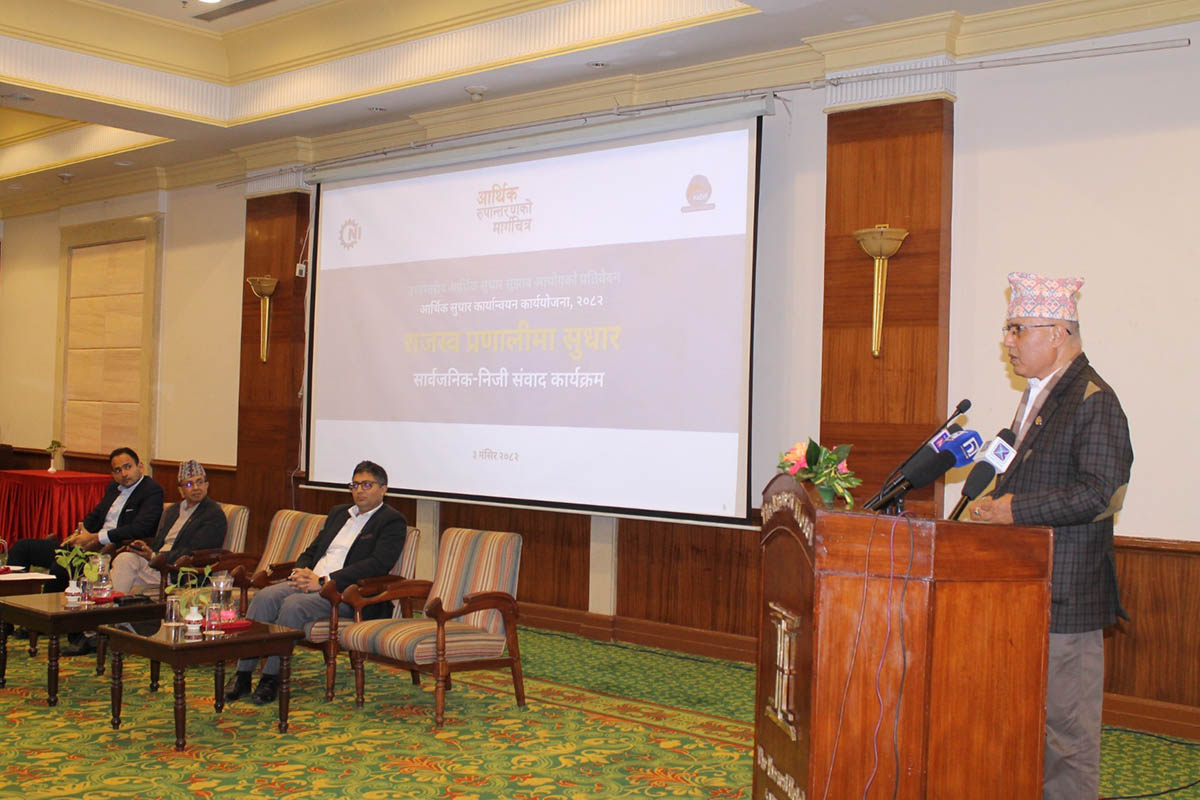
KATHMANDU: Confederation of Nepalese Industries (CNI) has urged the government to ensure tax‑policy stability to revive the country’s stagnant economy. It has released an analysis showing that only 18 of 33 recommendations from the High‑level Economic Reforms Recommendation Commission have been adopted.
Speaking at a public‑private dialogue on the Economic Reform Implementation Action Plan, 2082, organised in Kathmandu, on Wednesday, CNI President Birendra Raj Pandey highlighted: banks hold ample loanable funds and interest rates have fallen to single digits, yet market demand remains weak. “Industries are currently operating at low capacity due to this lack of demand,” Pandey said. “Money sitting idle in banks is not a positive sign for the economy and ultimately negatively impacts government revenue collection.”
Pandey said tax‑policy stability is decisive for both domestic and foreign investors and described CNI’s role as more than a critic. “We are a think tank that assists the government in policy implementation,” he said.
CNI’s analysis found an implementation gap: of the commission’s 33 suggestions, the government has included only 18 in its action plan, while 15 were rejected or omitted. Of the accepted reforms, five tasks are slated for completion within six months and 12 within one year.
Key measures in the government’s approved plan include establishing an automated link between the company registrar and tax office systems, and ensuring house‑rent tax is collected only at local level within six months. Within one year, the plan proposes abolishing the Revenue Investigation Department, transferring investigative responsibilities to other bodies, and introducing general anti‑avoidance rules in the VAT Act. The plan also proposes aligning customs rates with India and levying a flat 10% income tax on export earnings.
CNI flagged several rejected recommendations that it says remain major pain points for the private sector. These include a proposal to reduce the tax audit period from four years to three years; a call to halve fines for non‑deliberate general errors under section 120 (a); an exemption from tax under section 57 for regular family share transfers or transfers on death; and removing VAT on digital payments up to Rs 5,000.
The event concluded with CNI reaffirming its commitment to ongoing public‑private engagement to monitor and support implementation of the accepted reforms.






